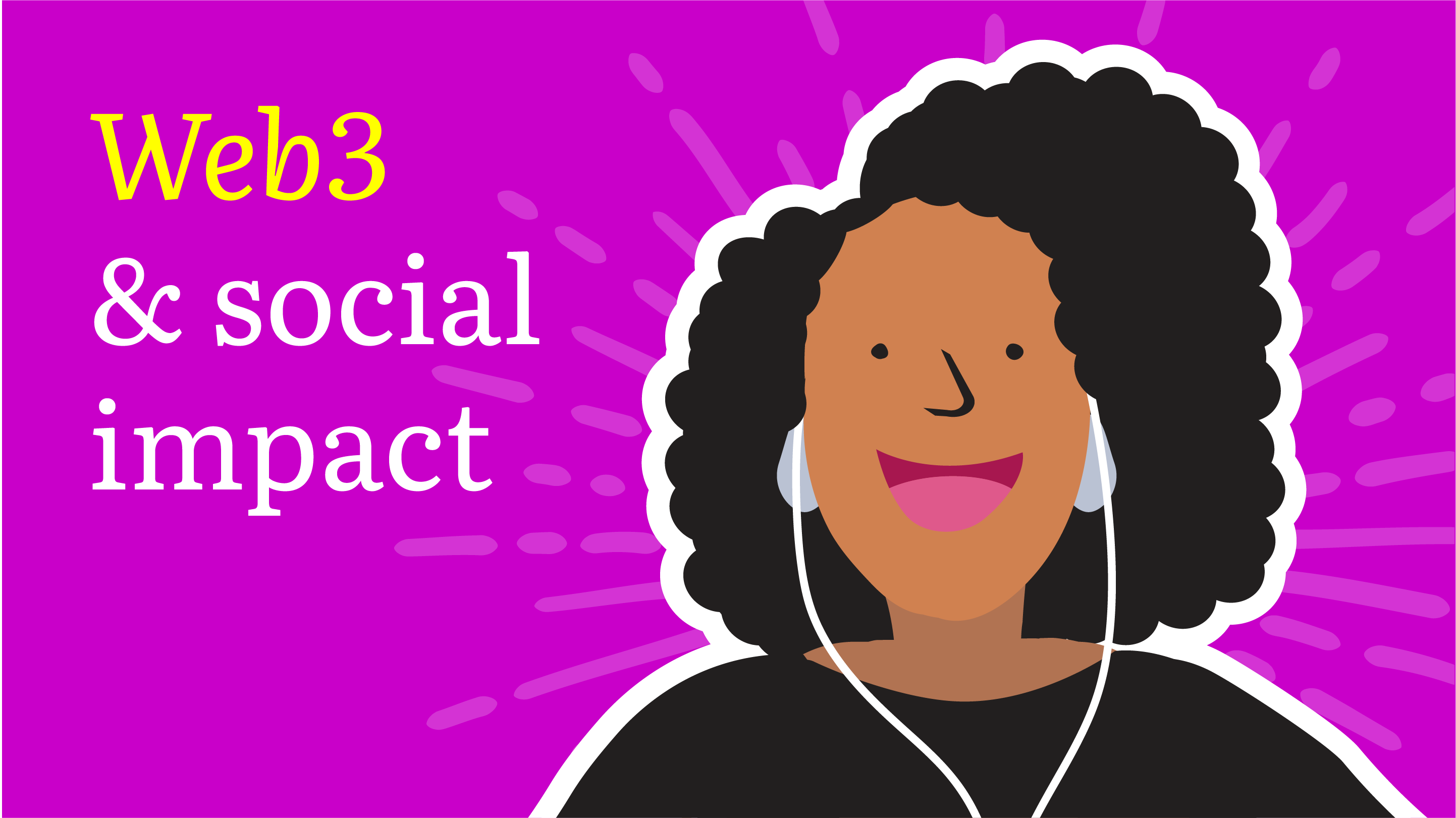- Hashed Out
- Posts
- Hashed Out V.13: Web3 & Social Impact
Hashed Out V.13: Web3 & Social Impact
Web3 Is Building New Tools to Advance The Greater Good

Welcome to the 13th edition of Hashed Out, your weekly guide to navigating the dynamic world of Web3, brought to you by Argot (www.argotagency.io). Whether you're taking your first steps into this digital frontier or already exploring it, our mission remains the same: to demystify the complexities of Web3 and equip you with the insights and resources you need to thrive.
Our vision extends beyond a simple newsletter—we aim to build a vibrant community where both enthusiasts and newcomers can gather, learn, and grow together. Think of us as your trusted sherpa on this journey, here to translate intricate concepts into clear, actionable insights. We'll connect you with the latest data and expert perspectives from the builders, researchers, and creators driving innovation in Web3.
Join us as we transform from curious explorers into true Web3 virtuosos, one issue at a time.
In This Issue- Table of Contents
Ok Hashers, are you ready to get started learning about some of the behind the scenes magic of Web3? I know I am! Let’s go!

How Web3 Is Providing New Tools for the Global Good
The internet has undergone radical shifts since its inception, from the early days of static web pages (Web1) to the rise of social media and centralized platforms (Web2). Now, we stand at the precipice of Web3—a decentralized, blockchain-powered evolution that promises not just technological advancement but profound social change. Unlike previous iterations of the internet, Web3 is not just about connectivity and commerce; it’s about redefining access, ownership, and governance in ways that could fundamentally transform the world.
For all its challenges—scalability, regulation, environmental concerns—Web3 offers solutions to some of the most pressing social issues: financial exclusion, lack of digital privacy, opaque governance, and restricted access to knowledge and resources. Across the globe, decentralized technologies are already making an impact, fostering financial empowerment, strengthening privacy, and enabling community-led decision-making.
This article explores the ways in which Web3 is bringing real social benefits, from banking the unbanked to creating transparent aid distribution systems, and examines why its ethical development matters for the future.

How Web3 Is Transforming Humanitarian Aid
The global humanitarian aid system has long been plagued by inefficiencies, fraud, and logistical challenges. From delayed disaster relief to corrupt intermediaries siphoning funds, billions of dollars meant for the most vulnerable populations are often lost in bureaucratic red tape. However, blockchain technology and Web3 innovations are offering a solution—one that prioritizes transparency, efficiency, and direct access to aid.
By leveraging decentralized ledgers, smart contracts, and digital identities, humanitarian organizations can track funds in real time, verify aid recipients with minimal risk of fraud, and ensure donations reach those who need them most. One of the most promising examples of this transformation is the World Food Programme’s (WFP) Building Blocks initiative, which uses blockchain to distribute food assistance securely and efficiently in refugee camps.

A Call for Ethical Web3 Development
Web3 is often framed as a technological revolution, but at its core, it’s a philosophical shift—a reimagining of power, ownership, and access in the digital world. The promise is enormous: decentralization, financial inclusion, self-sovereignty, and transparency. But as with any revolution, the impact of Web3 will depend on the choices we make today.
We are at a crossroads.
On one side, Web3 offers real, tangible social benefits—banking the unbanked, empowering creators, enabling transparent governance, and reshaping philanthropy. On the other, it risks falling into the same traps as the systems it aims to disrupt: financial speculation over real utility, exclusivity rather than accessibility, and unchecked power concentrated in the hands of a few.
Which path will it take?

CONNECTIONS: Curated Links for the Web3 Curious
Did you miss out on the previous issues of Hashed Out? See them all here!

THE NEWS DROP: Web3 News You Can Use

The Wrap
For those requiring a TLDR or just want a fast recap here it is:
Web3 isn’t just a technological shift—it’s a social revolution. This week, Hashed Out explores how decentralized technologies are driving real-world impact, from banking the unbanked to making humanitarian aid more transparent. Our main article breaks down Web3’s role in financial inclusion, digital identity, and governance, while our case study dives into how the World Food Programme uses blockchain to distribute aid more efficiently. In our editorial, we examine the ethical responsibility of Web3 builders to ensure this technology serves people, not just profits.
The future of Web3 is being built now. The question is: who will it serve?
Stay ahead of Web3’s evolution—subscribe to Hashed Out for expert insights! #Web3 #Blockchain #FutureOfTech
A Look Ahead
Ok, it’s about time to roll the credits! Where do we go from here? Next week we are going to take a more practical look at Web3 with a series of “how to” overviews that will allow you experience the Web3 future firsthand.
One last call, if you haven’t already, hit the subscribe button below to stay in the know. We have a lot of great stuff ready to be released and we would love for you to join our community and grow with us.
Already subscribed? Share with a friend!
I hope that you enjoyed this edition of Hashed Out. There is much more to come and your feedback is invaluable to how we will grow. If you have questions or comments drop us a line.
Ok Hashers, that’s The Wrap. Many thanks!
(Cue awesome exit music of your choice)
Dr. Scott






